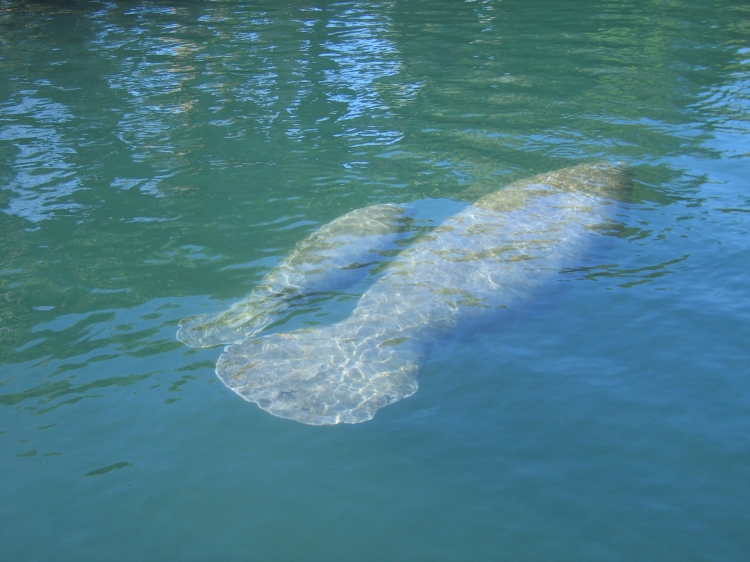New study revolutionizes gene expression analysis across species
A Florida manatee cow and calf pair photographed during field work conducted by UF. (Photo courtesy of Dr. Iske Larkin)
University of Florida (UF) Health News
By Sarah Carey
Gainesville, Florida — A new gene expression study by University of Florida researchers and colleagues holds promise for understanding how organisms — including humans, mice, and manatees — will respond to environmental changes, with important implications for conservation and wildlife health.
The study, reported in Nature Methods, was taken on by the Encyclopedia of DNA Elements, or ENCODE, group — a scientific project that aims to identify and catalog all functional elements in the human genome — and could transform scientists’ understanding of gene expression in different species.
Key findings show that longer, more accurate sequencing methods produce better results in identifying and quantifying genetic material.
The manatee portion of the study, led by Maite De Maria, Ph.D., currently a postdoctoral associate working with Cherokee Nation Solutions in support of the U.S. Geological Survey and previously based at UF, assessed new sequencing technologies and bioinformatics tools, comparing their performance across species.
“These new tools will help us understand changes in gene expression, as variants of the genes can be expressed in different circumstances and therefore change how humans, mice, and manatees interact with their environment,” De Maria said.
In manatees, the new technologies discovered previously unknown variants of expressed genes in the immune system. This could help researchers understand how these animals respond to environmental challenges like red tide, contaminants, and healing from injuries.
The inclusion of manatees in the research demonstrates the potential of these technologies for exploring wildlife species whose genetic makeup hasn’t been as widely studied.
“We found that a lot of information in less-studied species is lost when compared to information available for human and mouse,” De Maria said. “It’s important for the scientific community to invest in technologies that apply to other species and improve the genetic information available so we can understand how those species are responding to environmental changes.”
The research provides valuable information to the scientific community about the strengths and limitations of new sequencing technologies and analysis tools, guiding future research across species.
De Maria became involved in the study after being invited to collaborate with a new international project, led by Ana Conesa, Ph.D., a courtesy professor of microbiology and cell science at UF, to test the newest bioinformatic tools for transcriptomics technologies.
Nancy Denslow, Ph.D., a professor of environmental toxicology at UF and a co-author of the study, mentored De Maria as a Ph.D. student.
“While humans and mice were the logical models for this project, Maite and Dr. Conesa brought in a non-model species — the manatee,” Denslow said. “This collaborative effort has set a new standard for bioinformatics in non-model species research.”
